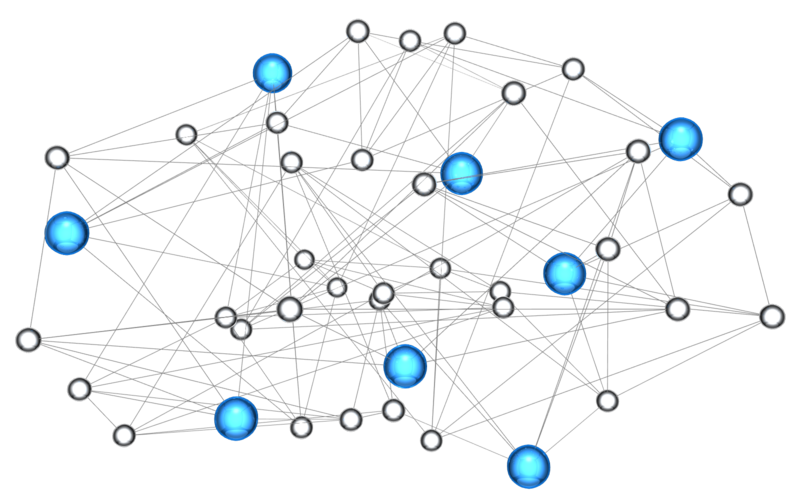Does My IP Address Change When I Travel: How to Control Your IP Online
What Happens to my IP address when I travel?
Often people are surprised when their online experience changes when they travel. Sometimes they can’t access sites they take for granted or simply just look different. There’s a reason and it’s mainly to do with how your IP changes when you travel to different countries. In this article we hope to answer the question – does my IP address change when I travel ?
What is my IP address?
An IP address is a unique number assigned to every computer that connects to the Internet. It identifies your device and provides a way for it to communicate with other devices on the Internet. Each individual IP address is completely unique and can be be traced back to your computer.
Every website you visit can usually see your IP address, browser, country, and even city of connection.They can also see your MAC address, which is another unique number that identifies your physical device. Your MAC address is less important for online activities like accessing the web, sending email etc.
What do Public Addresses Mean
Although it can get quite confusing, it’s actually quite simple. There are two basic types of IP addresses – public and private. Both are technically the same however they operate slightly differently.
Private IP addresses are from network ranges not meant to be used online. They allow computers to talk to each other on private networks but cannot be used online. For example they may be assigned by your wi-fi router in order to connect to other devices on your home network. Typical examples are 192.168.0.1, 192.168.1.1 often assigned automatically by Wifi access points.
Although these addresses are still important in order to connect locally, you can’t use these addresses online. To access the internet you’ll need a public IP address which must be unique. These are normally assigned by your Internet Service Provider when you go online. Your public IP address is the one everyone online will see. It will change based on where and how you connect to the internet.
When you see online discussions and explanations about IP addresses, it’s normally the public IP address which is being referenced. It’s public addresses we will be referencing in the rest of this document.
Why Does My IP address Change when I travel?
Simply because your IP address is assigned by whichever device/gateway or access point you are using to connect to the internet. You normally have no control at all over this and it is assigned directly wherever you are. So when you connect to the internet through a wireless access point in the airport, you will be assigned an IP address registered there. When you disconnect the address is released and you’ll have another IP address when you next connect somewhere.
As you travel you’ll be assigned different IPs related to your location. You’ll never keep the same IP address with you, although you may have a private address assigned to your device which will stay the same. This though is pretty irrelevant until you are connected to the network it was assigned from.
What Happens When you Change Your IP?
When you change your IP, it may not be clear to the people on your end. This is because a lot of web applications use IP addresses as part of their login process, and when you change your IP, they may have trouble determining if it is the same person. This can cause problems with services such as online banking or paying bills, where you need to log in again to verify your identity.
Also most websites will read your IP address and many will customise what you can access based on your location. For example Amazon will direct you to the local version of their site, Netflix will route you through to the version which maps your location. Sometimes this is good, however for travellers it frequently causes problems as they are blocked and restricted from sites they normally could access.
Here’s some of the potential issues people have using a new IP address from another country –
- Blocked from logging in to your online banking – website detects new country and fraud detection blocks.
- Routed through to a foreign language version of Netflix based on your location.
- Blocked from watching sites like BBC iPlayer or ABC because they only allow access to domestic customers.
- Charged different prices on global sites because of price discrimination
Of course sometimes these changes are good, sometimes they’re bad. What’s worse is knowing that you have no control over them because you can’t change your public IP address.
Or do you ?
How to Change Your IP Address Location
All these blocks, filters and restrictions are assigned by checking the location of your IP address. As mentioned it’s very difficult to change this address other than travelling somewhere else and reconnecting. If you’re in France, you’ll have a French IP address when you connect to the internet.
So how can you bypass these blocks? How can you change the location of your assigned IP address.
The answer is you can’t but you can hide your address and spoof a different one. Instead of changing your IP address directly there’s a simple way to pretend you’re somewhere else. It’s not difficult and it involves using something called a Virtual Private Network.
How to Change your IP on a VPN
What is a VPN?
A VPN is a virtual private network, which is designed to create a secure and encrypted connection between your computer or phone and the internet. This means that you can securely reach out to the internet without having to worry about your privacy or security.
It basically does two things regarding your privacy online –
- Hides your real IP address so that no-one can determine your location.
- Encrypts your internet connection so that your data is hidden from interception.
Ideal for those who want to remain anonymous online whether simple privacy – why should someone be able to view what you do online ! Millions use it for this simple reason although probably many just want to download porn discretely without blocks !
Spoofing Your IP address (Using the VPN)
We’ve already explained that it’s difficult to change your real IP address but this isn’t really that important. When you’re connected to a VPN it’s only the VPN server’s IP address which is visible. So you can effectively choose which location you appear to be from simply by connecting to a server in that location – UK server for UK IPs, US Servers for US IPs and so on.
The technology works in very much the same way as proxy servers although there’s no doubt VPNs are generally more secure.
Sounds more complicated than it is so here’s a quick video –
As you can see if you choose a user friendly VPN like NordVPN it’s very straight forward. You simply click on the server you want to connect to and you’ll appear to be in the same country. Extremely handy for bypassing the endless blocks and filters that exist online.
So the example above showed how someone outside the UK could enjoy BBC iPlayer by simply selecting a UK VPN server to connect to. The TV channels are normally restricted to UK domestic customers, but by using a VPN anyone can use it. Very useful considering the BBC iPlayer has more and arguably better TV programmes available than the vast majority of expensive cable or satellite packages, and they’re all free! If you like UK television then you can also stream ITV abroad using this method too!
The same technique works to bypass the majority of these blocks in all sorts of websites. For example you can place adverts on Craigslist whilst travelling using a proxy or VPN, without getting blocked.


Submit A Comment